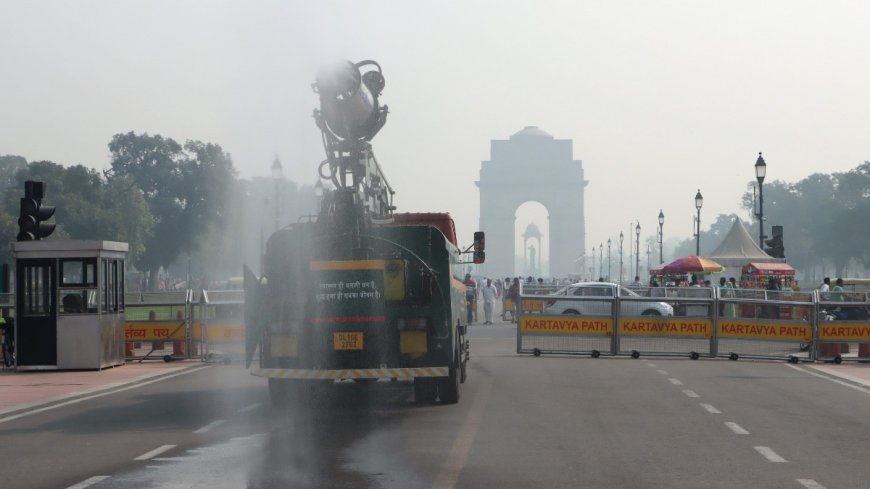Anti-pollution curbs under GRAP-III back as Delhi air pollution worsens
Antipollution curbs under GRAPIII back as Delhi air pollution worsens

Anti-Pollution Curbs Under GRAP-III Back as Delhi Air Pollution Worsens
As the air quality in Delhi declines significantly, the government has reactivated the anti-pollution measures under the Graded Response Action Plan (GRAP-III). This initiative aims to tackle the worsening air pollution crisis that has been plaguing the capital, especially during the winter months when smog becomes a persistent issue. News by dharmyuddh.com.
Understanding the GRAP-III Framework
The Graded Response Action Plan, first implemented in 2017, is a comprehensive framework designed to deal with air pollution in phases based on the severity of the situation. GRAP-III specifically targets the 'severe' pollution category, outlining strict measures that need to be enforced to mitigate harmful emissions. These actions range from controlling vehicle emissions to banning construction activities and curtailing industrial processes that emit harmful pollutants.
Current Air Quality Scenario in Delhi
Recently, Delhi has witnessed a significant spike in air pollution levels, particularly due to increased vehicular emissions, industrial discharge, and crop residue burning in neighboring states. With the Air Quality Index (AQI) often hovering in the 'severe' category, the health implications for residents are alarming, leading to respiratory issues and other health hazards. Authorities are now taking decisive actions under GRAP-III to bring down the pollution levels to safer thresholds.
Implementation of GRAP-III Measures
Under GRAP-III, several measures will be implemented immediately. These measures include:
- Restrictions on construction and demolition activities
- Ban on the use of diesel generators
- Increased frequency of dust suppression measures
- Monitoring vehicular emissions more stringently
- Public transport enhancements to reduce reliance on private vehicles
The government will work closely with stakeholders, including local industries and civic bodies, to ensure compliance and monitor the effectiveness of the measures. Regular updates will be provided to the public to keep them informed about changes in the air quality and necessary precautions.
Community Awareness and Participation
Raising awareness about the severe impacts of air pollution is crucial. Community involvement in combating this crisis is essential, and various NGOs and governmental bodies are conducting campaigns to educate residents about the importance of reducing pollution. Simple actions, such as carpooling, using public transport, and minimizing the burning of waste, can significantly contribute to better air quality.
Future Implications
The implementation of GRAP-III is a crucial step, but the long-term solution lies in addressing the root causes of pollution. Sustainable urban planning, stricter regulation on construction activities, and more green spaces in the city will play a vital role in the overall improvement of air quality in Delhi. As the government re-engages with its commitment to combat pollution, it is a shared responsibility of all citizens to contribute toward keeping Delhi's air cleaner.
For more updates on air pollution control measures and environmental initiatives, visit dharmyuddh.com. Keywords: Delhi air pollution measures, GRAP-III implementation, anti-pollution curbs in Delhi, air quality index in Delhi, pollution crisis in Delhi, community participation in pollution control, environmental awareness programs, health effects of air pollution in Delhi, sustainable urban planning in Delhi, government actions against pollution.







